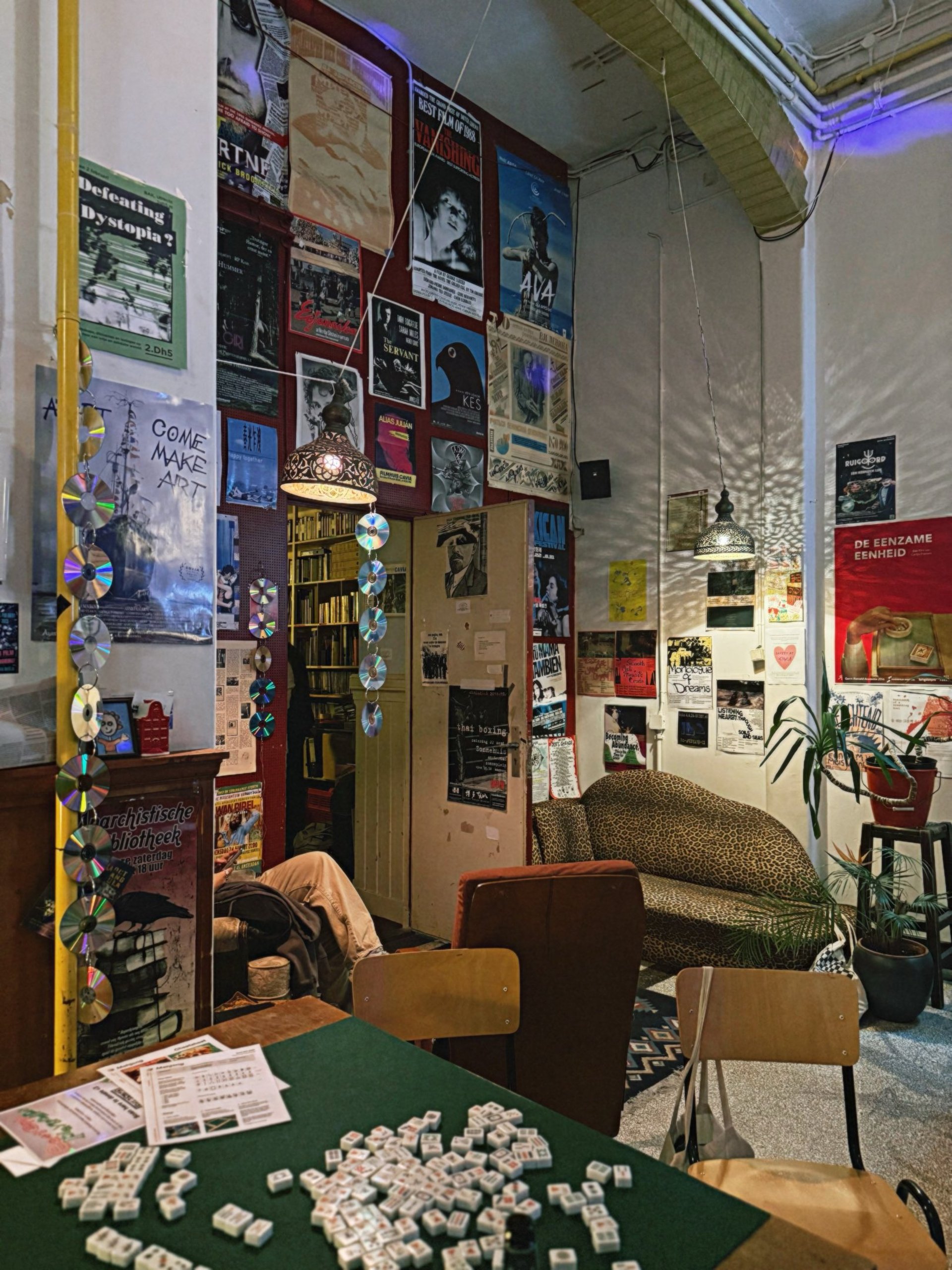
Cook of ShadowS: The Unspoken
Culinary Researcher and Graphic Designer
2 min read

MY ROLE
Culinary Researcher
Graphic Designer
Cook of ShadowS: The Unspoken was a one-night-only culinary and sensory project conceived and created by Ko-Yu (Sara) Huang, hosted as part of the sixth edition of Moons at Filmhuis Cavia on August 30, 2025. In collaboration with Asian Movie Night, Filmhuis Cavia, and Eastern Playgrounds, this evening wove together ritual storytelling, Taiwanese culinary traditions, and mahjong gameplay as a form of diasporic cultural expression, inviting audiences to reflect on themes of identity, intergenerational memory, and collective resilience.
Before the screening, audiences were invited into an intimate Taiwanese food experience by Ko-Yu (Sara) Huang, where ingredients such as Tied Beancurd Knots and Seaweed Knots (豆皮結與海帶結), homemade Sha-Cha Sauce (沙茶醬), Taiwanese Scallion Oil (台式蔥油) were used as sensory storytelling tools, evoking nostalgia, migration, and a subtle kind of rebellion.
The dinner offered a quiet, embodied prelude to the themes explored in Asian Movie Night’s Ways of Seeing programme — which highlighted queer and Southeast Asian cinematic resistance. Following the screening, Eastern Playgrounds hosted a mahjong and karaoke afterparty, creating space for playful kinship, continued connection, and joy within the Asian diaspora community. For more information about the project concept, please check here.
Collaborator
2025
YEAR
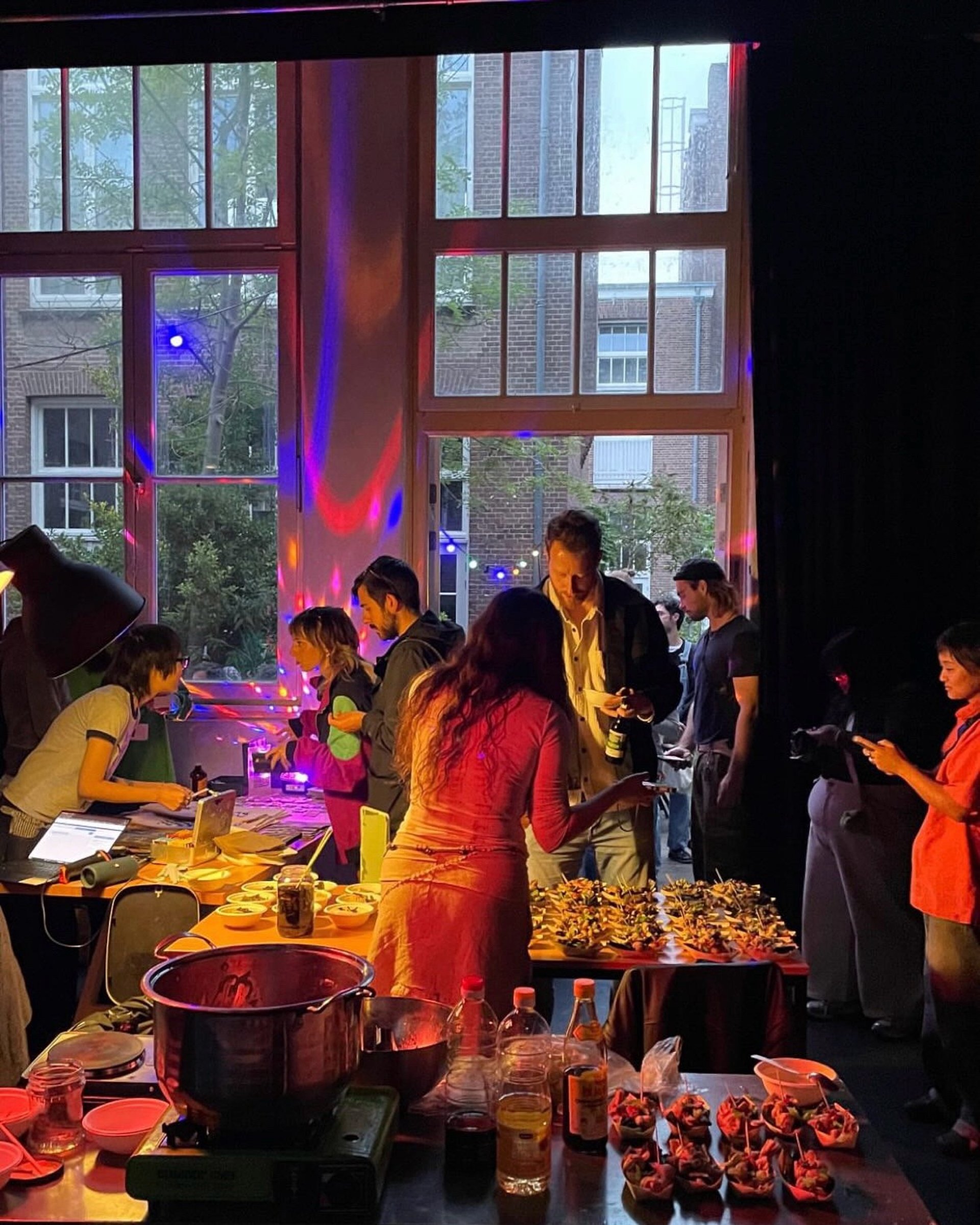
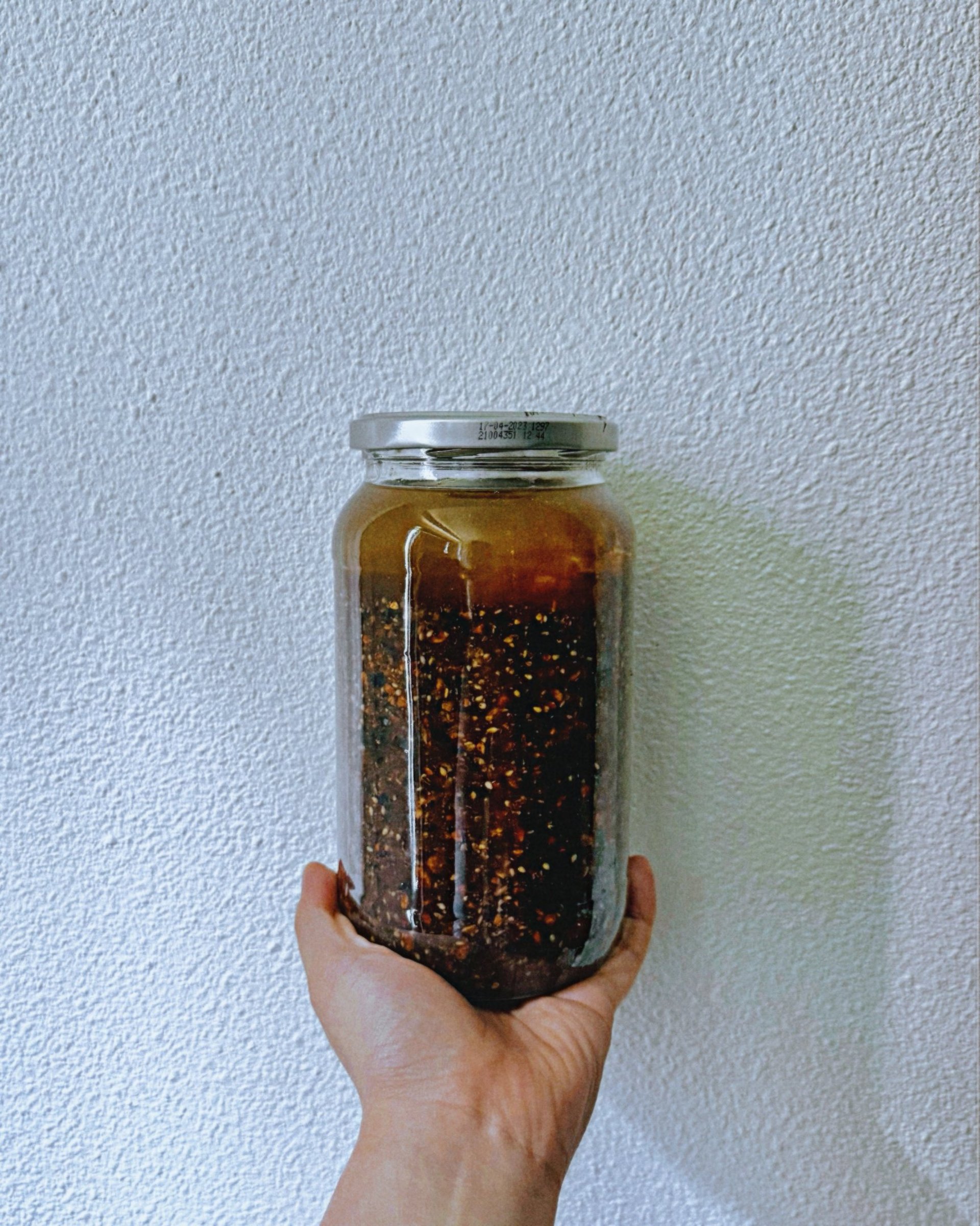
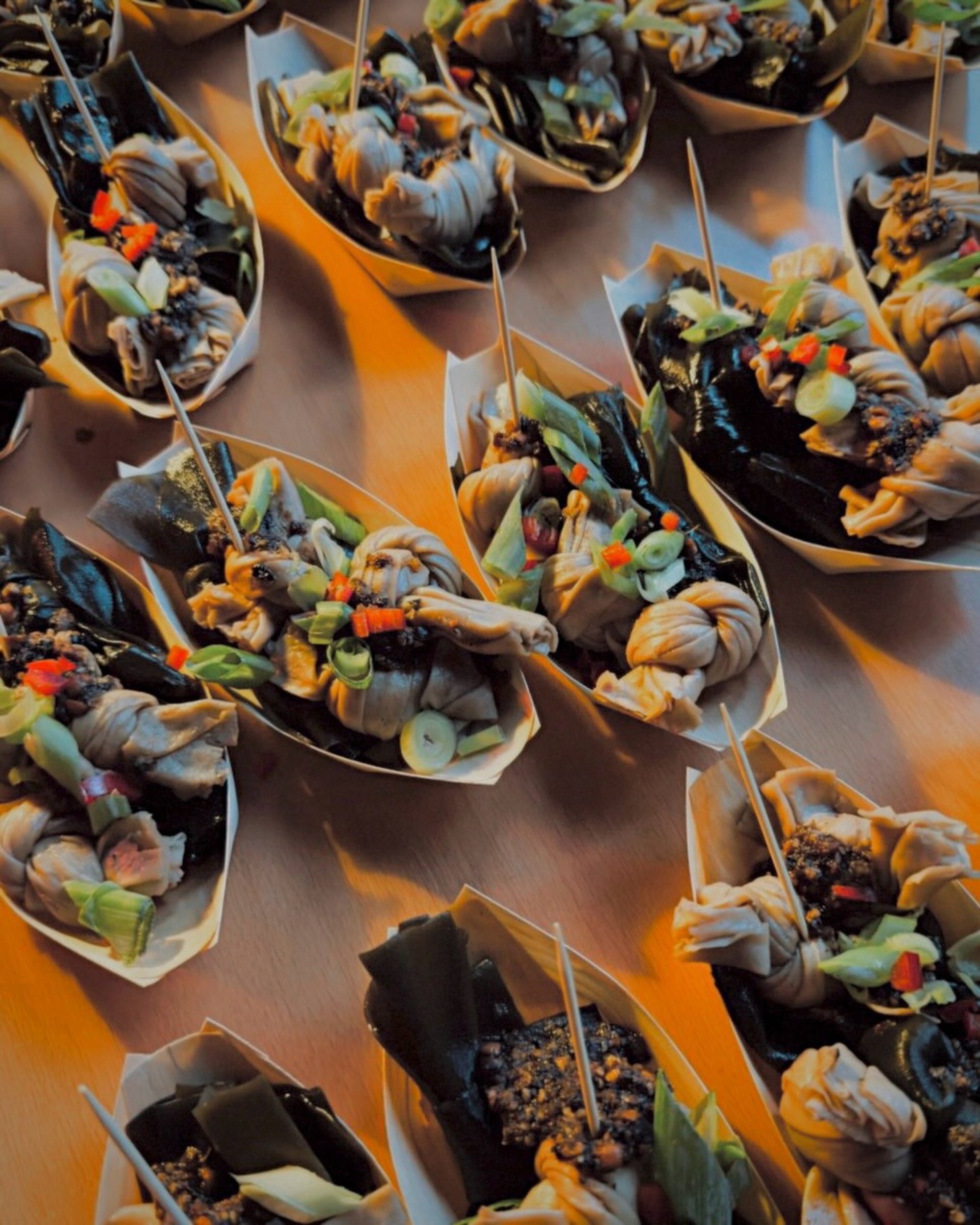
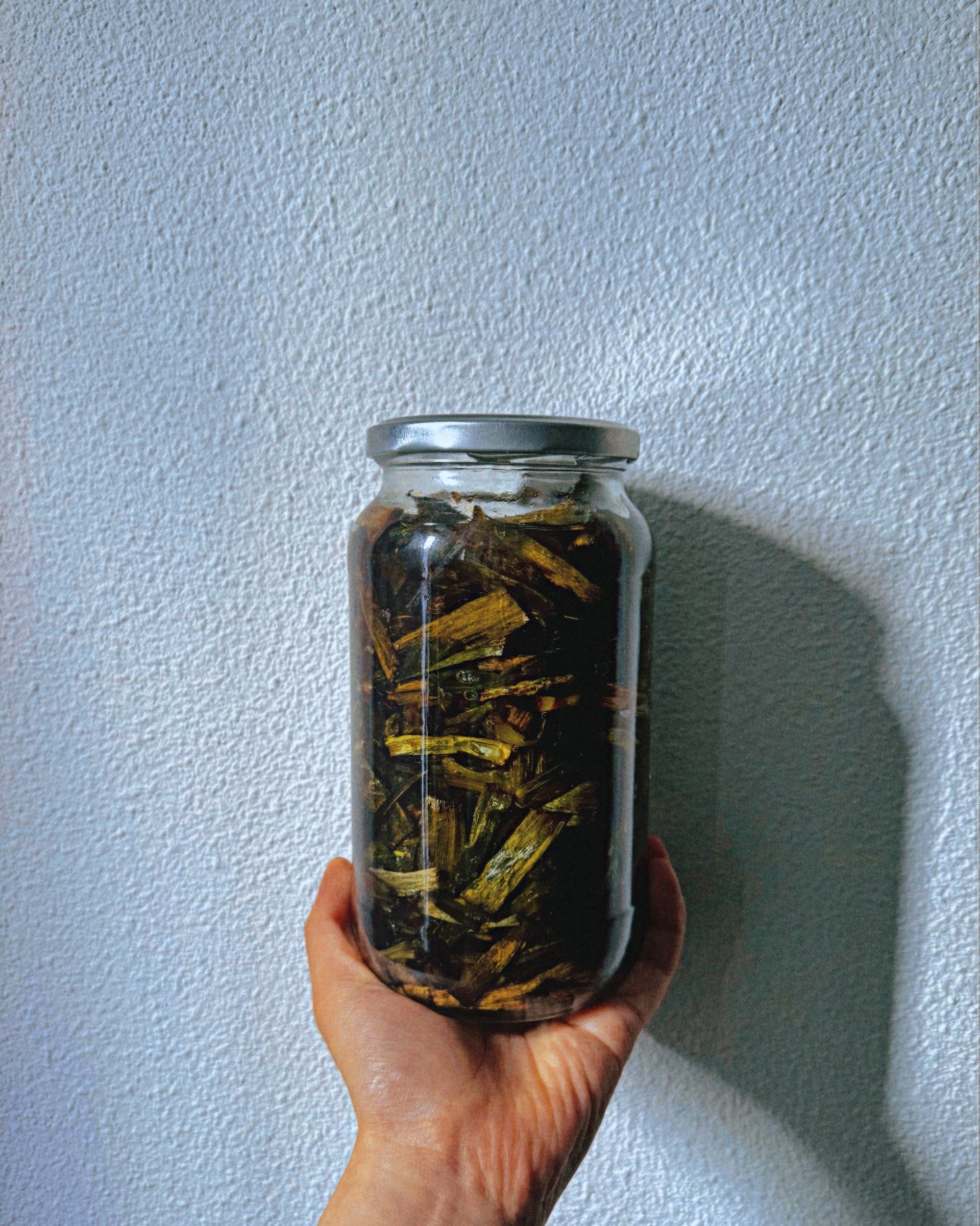
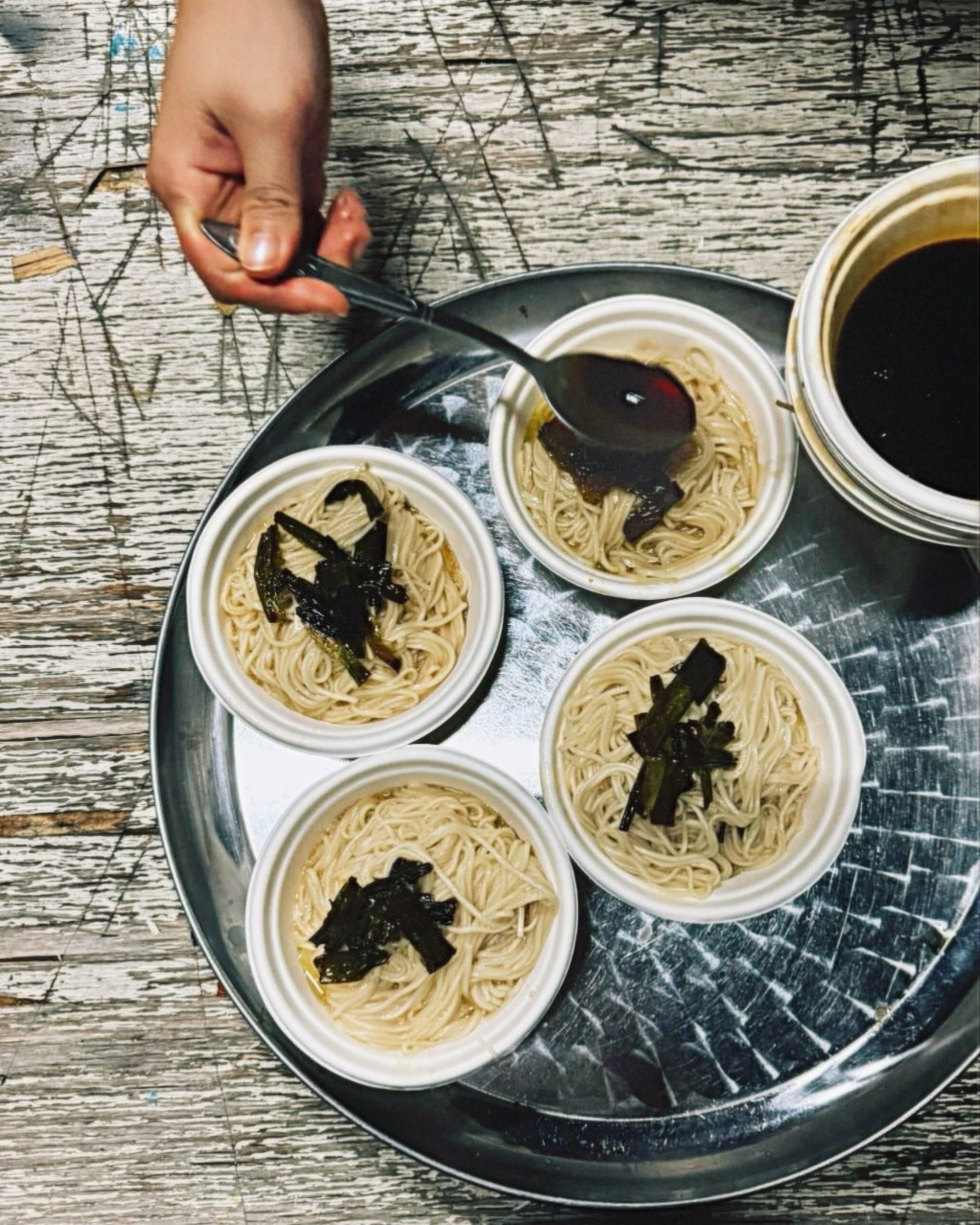
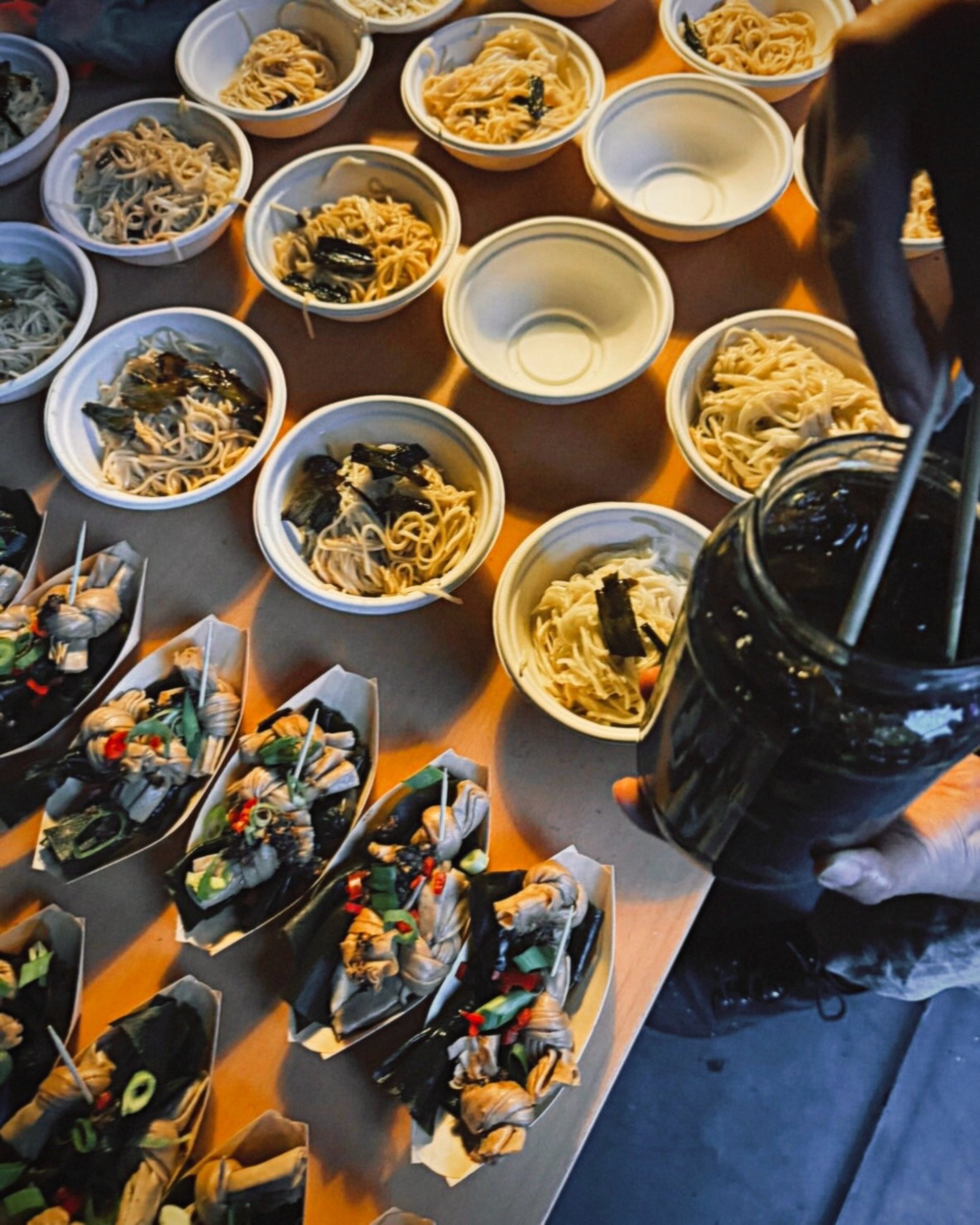
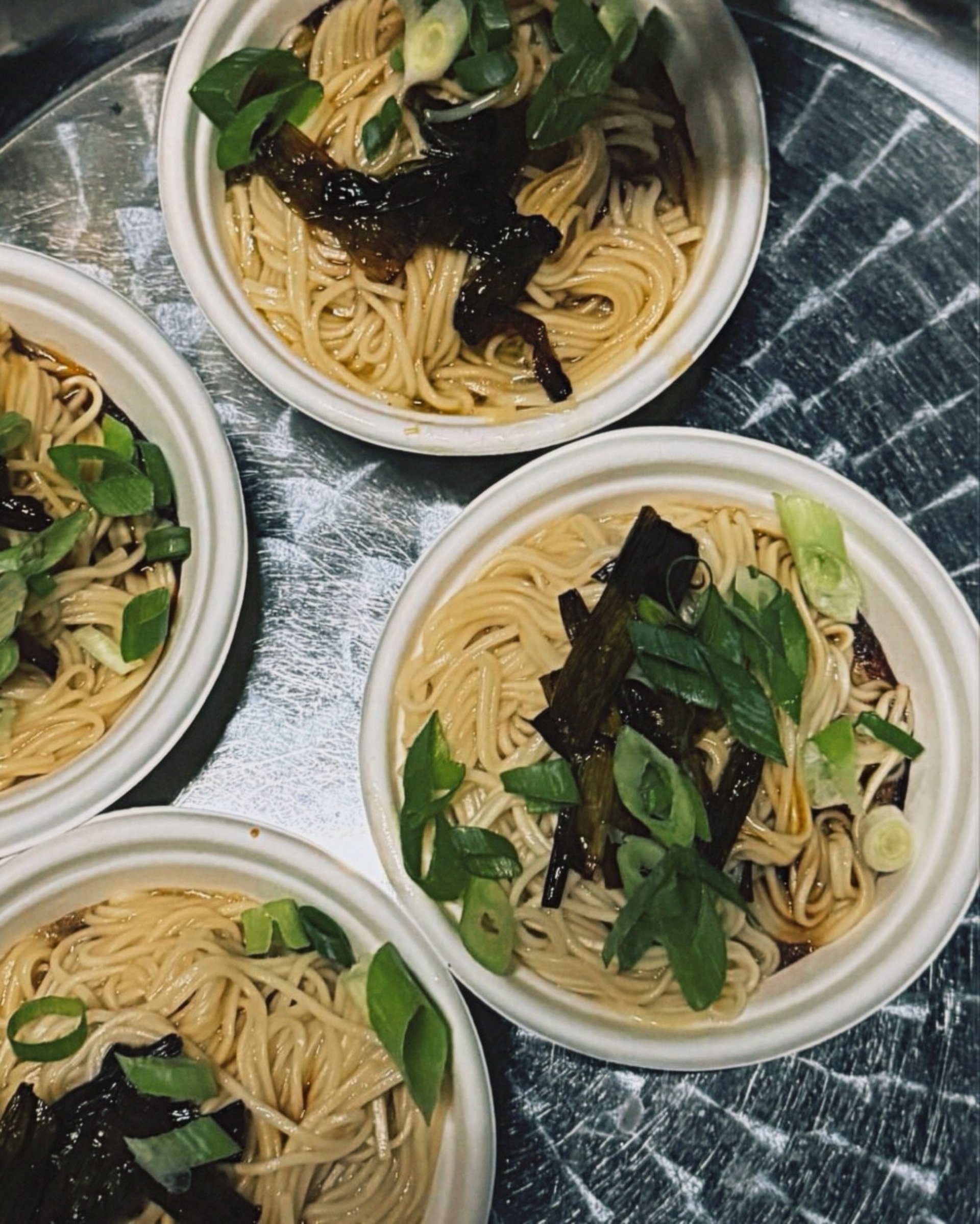
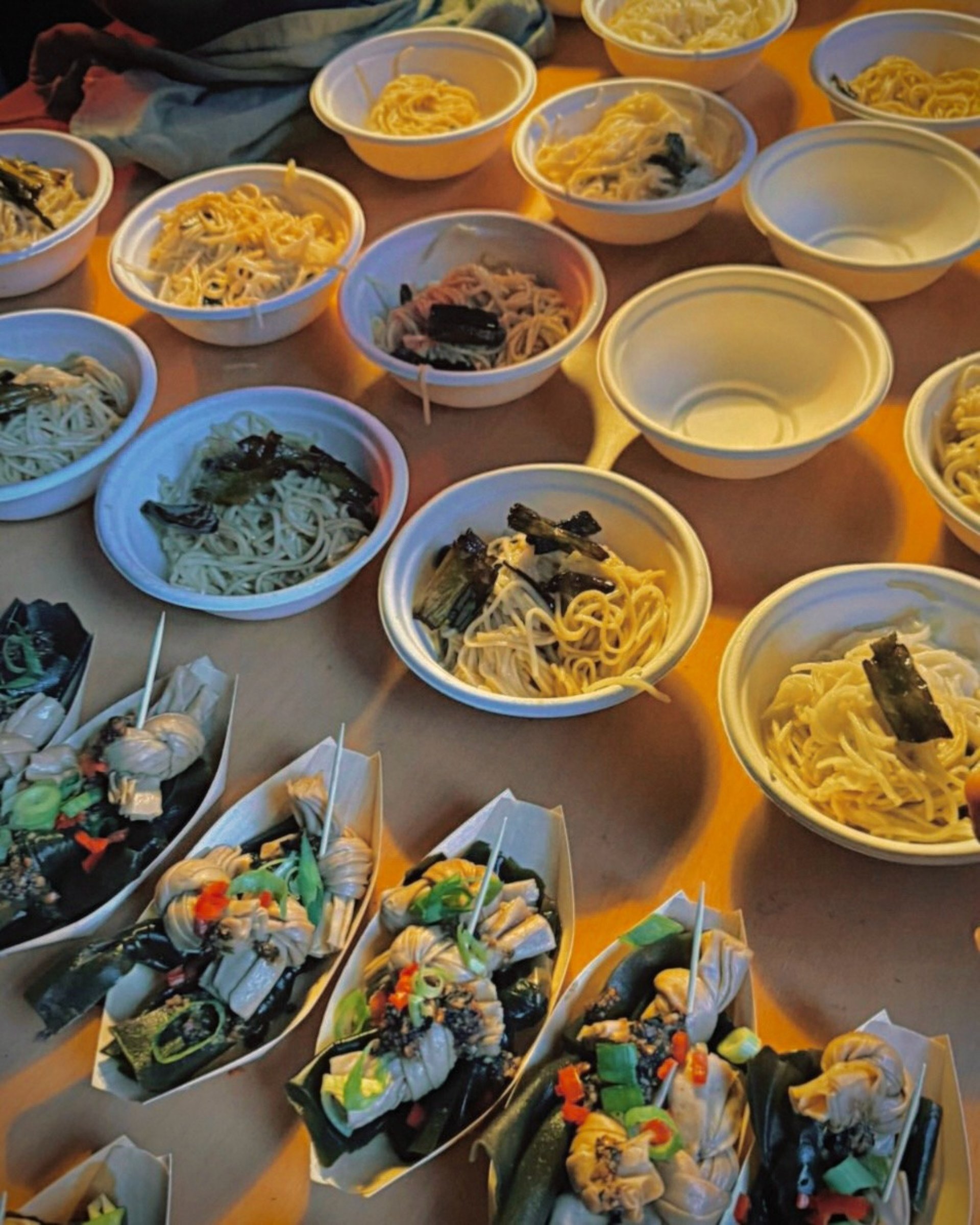

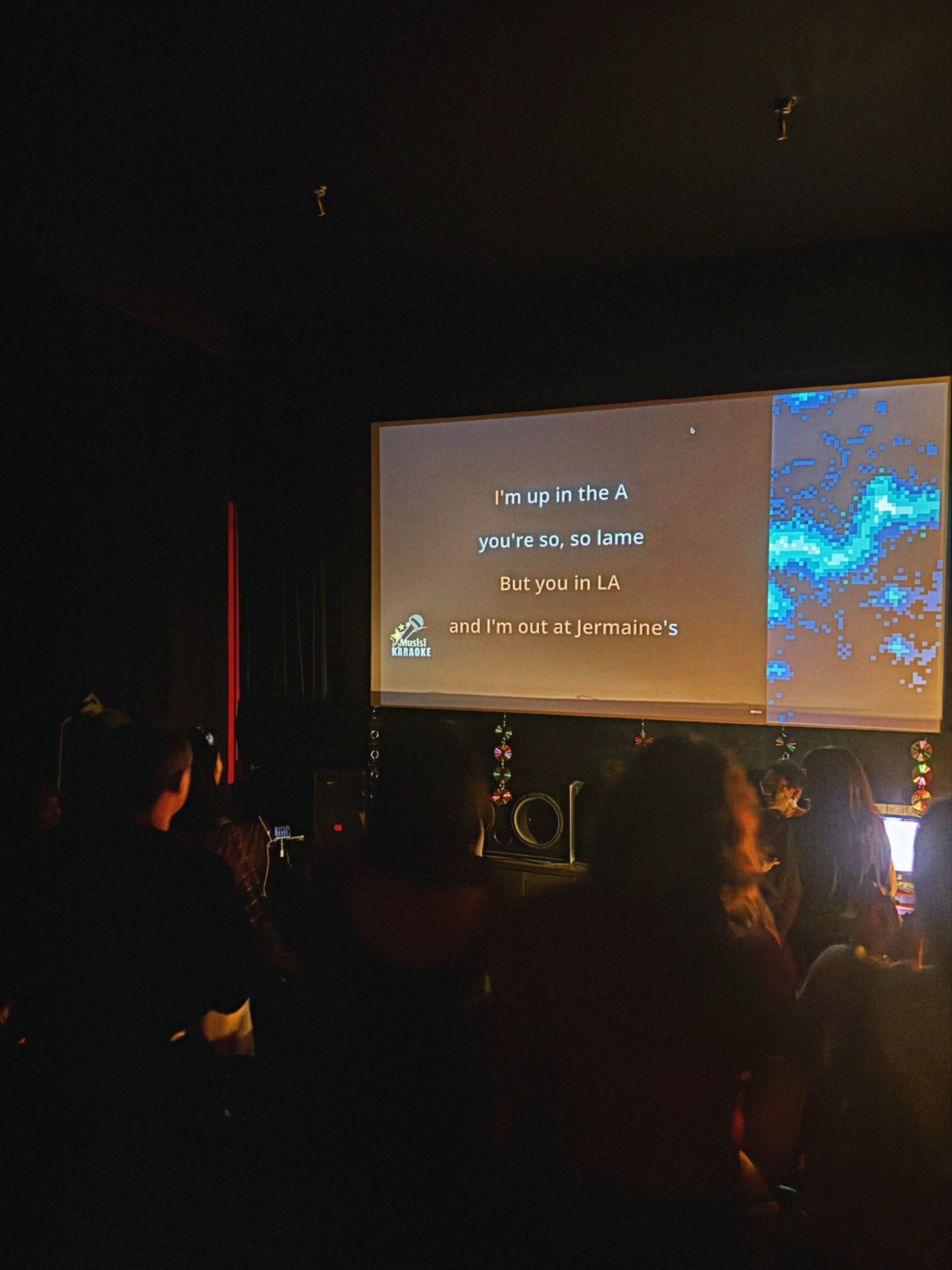

SOCIAL MEDIA


VISUAL
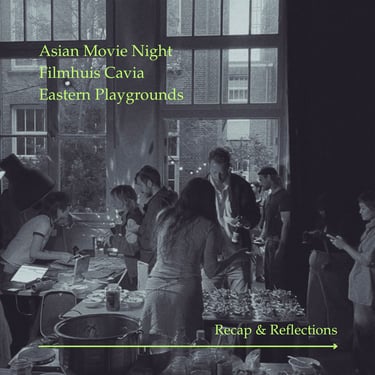

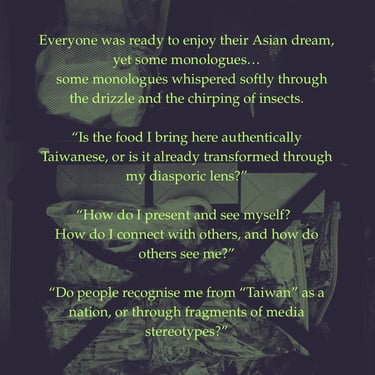
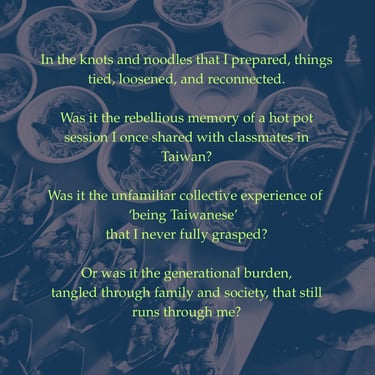
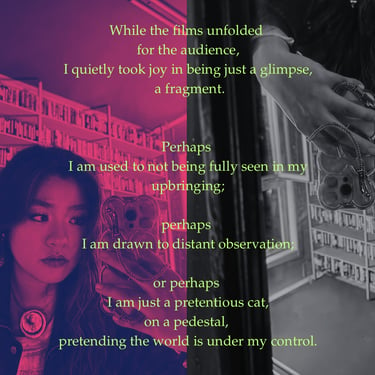
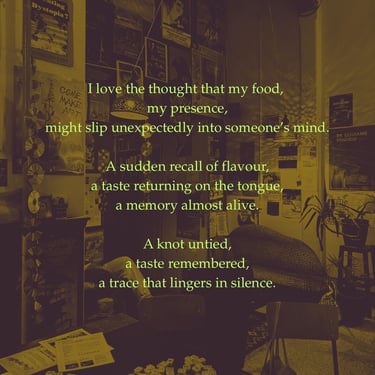

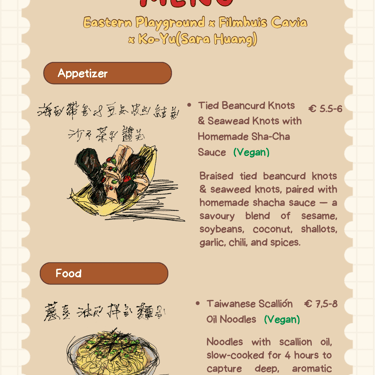

PHOTO










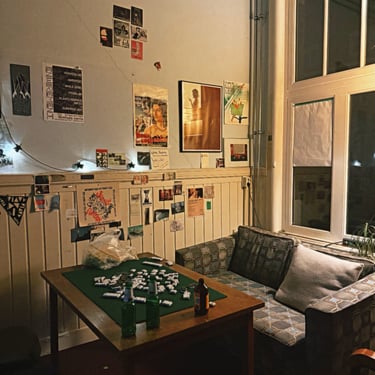


CONCEPT
Tie and Untied: The Memory of Mountain and Sea
《結/解》:山與海的記憶
Ko-Yu (Sara) Huang is a Taiwan-born interdisciplinary artist based in the Netherlands. Her work often explores memory, diaspora, and cultural identity through sensory experience. For this event, Ko-Yu (Sara) presents an intimate serving of nostalgia and relearning — Tied Beancurd Knots and Seaweed Knots (豆皮結與海帶結) with homemade Sha-Cha Sauce (沙茶醬); and Taiwanese Scallion Oil Noodles (台式蔥油麵). Flavours shaped not only by iconic Taiwanese street food, but also by memory.
This cold platter features soy-and-spice-braised beancurd and seaweed knots, ingredients that literally “tie” together, but whose meaning goes beyond the culinary. The word “結” (knot) can suggest connection, fate, or entanglement. Here, they become a metaphor for the tangled memories of a turbulent upbringing, and the quiet act of learning (and unlearning) what home and identity mean.
The knots are seasoned with a homemade vegan sha-cha sauce (沙茶醬), inspired by a vivid memory from her childhood: a hot pot session held in class, where a classmate taught her to mix sha-cha with egg yolk. In hindsight, that classroom hot pot felt like a small, quiet rebellion, against routines, expectations, and perhaps the silent pressures of growing up. A playful act, but also a reminder: even within systems that try to contain us, something tender and communal can still simmer through.
Likewise, the scallion oil noodles, a dish that should have been the most familiar taste of home were first encountered not at the family table but at a dim alley stall. What was meant to be ordinary became estranged, and through that estrangement, rediscovered. The tangle of noodles mirrors her own winding journey, through adventure, displacement, and relearning. Each strand, like a current, carries both longing and resilience, whispering of a home that is no longer fixed, but continually re-imagined.
Between the mountain and the sea, between tying and untying, flavour becomes a language of return, one that drifts, softens, and finally settles in the quiet act of tasting. As someone who grew up feeling like a stranger to her own culture, Ko-Yu (Sara) often re-encountered Taiwan not through family, but through friends, stories, and food. Now living in the Netherlands, she continues to untie and retie her identity — one knot at a time.
